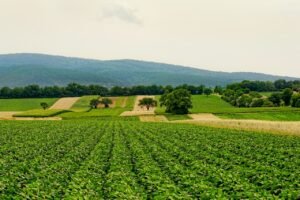
Are you interested in learning how to grow your own produce in the city? Look no further! The “Introduction to Urban Farming Workshops” is your gateway to learning all about the exciting world of urban farming. These workshops and courses are designed to provide you with the knowledge and skills needed to start your own urban garden, no matter how small or large your space may be. From cultivating herbs on your windowsill to setting up a full-fledged rooftop garden, our friendly instructors will guide you every step of the way. Get ready to transform your urban environment into a thriving oasis of fresh, homegrown goodness.

Benefits of Urban Farming Workshops
Hands-on training
Urban farming workshops offer participants the opportunity to gain valuable hands-on training in various aspects of urban agriculture. By actively engaging in the farming practices, individuals can develop practical skills and confidence in cultivating their own crops. This hands-on experience allows participants to understand the challenges and rewards of urban farming, while also providing them with the necessary skills to successfully start and maintain their own urban farms.
Education about sustainable farming practices
One of the key benefits of urban farming workshops is the education they provide about sustainable farming practices. Participants learn about methods and techniques that promote environmental sustainability, such as organic farming, natural pest control, and water conservation. By incorporating sustainable farming practices into their urban farms, individuals can minimize their environmental impact and contribute to a more resilient and sustainable food system.
Opportunity for community building
Urban farming workshops provide a unique opportunity for community building. Participants come together with a shared interest in urban agriculture and have the chance to connect with like-minded individuals. These workshops often involve group activities, discussions, and collaboration, fostering a sense of community among participants. This sense of community extends beyond the workshop itself, as participants often continue to network and support each other in their urban farming endeavors long after the workshop has ended. The bonds created through these workshops can lead to the formation of urban farming communities and the sharing of resources and knowledge among participants.
Types of Urban Farming Workshops
Introduction to urban farming
Introduction to urban farming workshops are designed for beginners who have little or no experience in farming. These workshops provide a comprehensive overview of urban farming, covering topics such as selecting suitable crops, preparing the soil, planting techniques, and basic maintenance. The focus is on equipping participants with the fundamental knowledge and skills needed to start their own urban farms.
Vertical gardening techniques
Vertical gardening workshops focus on the innovative technique of growing plants vertically, making the most of limited space in urban environments. Participants learn how to design and construct vertical gardens, choose suitable plants, and maintain proper vertical gardening systems. These workshops are especially beneficial for urban dwellers with limited garden space, as they provide practical solutions for growing a wide variety of crops in a small area.
Aquaponics and hydroponics
Aquaponics and hydroponics workshops introduce participants to soilless farming methods that utilize water and nutrient-rich solutions to grow plants. In aquaponics, fish waste provides the nutrients needed for plant growth, while hydroponics relies on nutrient solutions added directly to the water. These workshops cover the basics of setting up aquaponics and hydroponics systems, maintaining water quality, and selecting appropriate crops for these innovative farming methods.
Composting and soil health
Composting and soil health workshops focus on teaching participants the importance of composting and maintaining healthy soil for successful urban farming. Participants learn how to create and manage compost systems, improve soil fertility, and make use of compost in their farming practices. These workshops also educate participants on the benefits of soil health, such as improved plant growth, increased water retention, and reduced soil erosion.
Urban beekeeping
Urban beekeeping workshops introduce participants to the fascinating world of beekeeping in urban environments. Participants learn about the importance of bees in pollination, the basics of beekeeping equipment and hive management, and the production of honey and beeswax. These workshops provide participants with the knowledge and skills needed to set up and maintain their own beehives, contributing to the preservation of pollinators and the production of local honey.
Urban livestock farming
Urban livestock farming workshops cater to individuals interested in raising animals for food or other purposes in urban settings. Participants learn about small-scale livestock farming practices such as raising chickens, rabbits, or goats, as well as the necessary regulations and considerations for urban livestock husbandry. These workshops emphasize ethical and sustainable practices, ensuring that urban livestock farming is carried out in a responsible manner that respects animal welfare and the urban environment.

Choosing the Right Urban Farming Workshop
Identify your goals and interests
Before selecting an urban farming workshop, it is important to identify your goals and interests in urban agriculture. Consider why you want to participate in a workshop and what specific skills and knowledge you hope to gain. Identifying your goals will help you narrow down the options and choose a workshop that aligns with your interests and aspirations.
Research available workshops
Once you have identified your goals and interests, research the available urban farming workshops in your area. Look for workshops that cover the topics most relevant to your needs and offer a comprehensive curriculum. Read reviews and testimonials from previous participants to get a sense of the quality and effectiveness of the workshops.
Consider the workshop duration and schedule
Consider the duration and schedule of the workshop when making your decision. Some workshops may be offered as one-day intensives, while others may span several days or weeks. Take into account your availability and time commitment when choosing a workshop. Additionally, check the schedule to ensure that the workshop dates do not clash with any other commitments you may have.
Evaluate the expertise of instructors
The expertise and experience of the instructors leading the workshop are crucial factors to consider. Look for workshops facilitated by knowledgeable professionals who have extensive experience in urban farming. Research their background and qualifications to ensure that they are well-versed in the subject matter and can effectively guide participants throughout the workshop.
Look for workshops with practical components
Practical components, such as hands-on activities and field visits, are key to a comprehensive urban farming workshop. Look for workshops that offer practical components where participants can apply the knowledge and skills they have learned. Practical experiences provide a deeper understanding of the farming practices and ensure that participants are well-equipped to implement what they have learned in their own urban farms.
Important Considerations for Urban Farming Workshops
Costs and financial commitments
It is crucial to consider the costs and financial commitments associated with urban farming workshops. Some workshops may be free or subsidized, while others may require participants to pay a registration or tuition fee. Additionally, take into account any additional costs such as materials, tools, or transportation that may be required for the workshop. Budget accordingly and ensure that the workshop fits within your financial means.
Availability of resources
Consider the availability of resources when choosing an urban farming workshop. Check if the workshop provides the necessary materials, tools, and resources for participants to effectively engage in the training. If certain resources are not provided, make sure they are readily accessible to you before committing to the workshop. Being well-equipped with the necessary resources will enhance your learning experience and enable you to apply what you have learned in real-life farming scenarios.
Location and accessibility
The location of the urban farming workshop is an important consideration. Choose a workshop that is easily accessible and convenient for you to attend. Consider factors such as travel time, distance, and transportation options. Selecting a workshop that is within reach will make it easier for you to participate fully and engage in all aspects of the training.
Inclusion of diverse farming practices
Urban farming encompasses a wide range of practices and techniques. Look for workshops that take into account this diversity and offer a comprehensive exploration of different farming methods. This will expose you to a variety of approaches and allow you to determine which practices best align with your interests and goals. A workshop that includes diverse farming practices will provide a more holistic learning experience.
Support and follow-up after the workshop
Consider whether the workshop offers any support or follow-up after the training. Some workshops may provide resources, materials, or online communities where participants can seek guidance and support even after the workshop is over. Having access to ongoing support can be invaluable as you begin implementing what you have learned and face challenges along the way.
Networking opportunities
Networking opportunities are another important consideration when choosing an urban farming workshop. Look for workshops that provide opportunities to connect with other participants, instructors, and professionals in the field. Networking allows you to build relationships, share experiences and knowledge, and potentially collaborate with others in the future. The connections made during a workshop can pave the way for future partnerships and opportunities in the field of urban farming.

Well-known Urban Farming Workshop Providers
Urban Farm U
Urban Farm U is a renowned provider of urban farming workshops and courses. They offer a wide range of workshops that cover various aspects of urban agriculture, from introductory courses to specialized topics. Urban Farm U’s workshops are known for their comprehensive curriculum, experienced instructors, and hands-on learning opportunities.
Growing Power
Growing Power, a nonprofit organization, is well-regarded for their urban farming workshops and training programs. They focus on sustainable and community-based farming practices, empowering individuals and communities to grow their own food. Growing Power’s workshops are highly regarded for their practical components and their commitment to fostering community building and social equity.
The Farm School
The Farm School offers a variety of workshops and courses on urban farming, catering to individuals of all skill levels. They are known for their commitment to promoting sustainable and regenerative farming practices, as well as their emphasis on experiential learning. The Farm School’s workshops provide participants with hands-on training, comprehensive resources, and ongoing support.
Brooklyn Grange Farm
Brooklyn Grange Farm is not only an urban farm itself but also offers workshops and classes to the public. Their workshops cover a range of urban farming topics, including rooftop farming, composting, and beekeeping. With their extensive experience in urban agriculture, Brooklyn Grange Farm provides participants with valuable insights and practical knowledge.
Seattle Tilth
Seattle Tilth is a respected organization that offers urban farming workshops in the Seattle area. Their workshops focus on organic and sustainable farming practices, promoting the use of natural materials and methods. Seattle Tilth’s workshops are known for their interactive and engaging approach, providing participants with a solid foundation in urban farming.
Success Stories from Urban Farming Workshops
Transformation of vacant lots into productive gardens
Urban farming workshops have played a pivotal role in transforming vacant lots and unused spaces in urban areas into productive gardens and green spaces. Participants who have attended these workshops have learned how to utilize these underutilized areas and turn them into thriving farms. This has not only beautified the neighborhoods but also provided fresh produce and enhanced food security in communities.
Engagement of underserved communities in farming
Urban farming workshops have been instrumental in engaging underserved communities in farming. By providing access to knowledge and resources, these workshops have empowered individuals in low-income neighborhoods to grow their own food, improve nutrition, and create economic opportunities. The workshops have become a catalyst for social change and community development, allowing these communities to take control of their food production and build resilience.
Creation of local food markets
Many individuals who have attended urban farming workshops have gone on to create local food markets in their communities. These markets provide an avenue for urban farmers to sell their produce directly to consumers, fostering a direct connection between the farmers and the community. The creation of local food markets not only promotes the consumption of fresh and locally grown food but also contributes to the development of local economies and the strengthening of community bonds.
Improvement in urban food security
Urban farming workshops have had a significant impact on improving food security in urban areas. Participants who have learned how to grow their own food through these workshops have become more self-sufficient and less reliant on external food sources. This has helped reduce food insecurity, especially in areas with limited access to fresh produce. Urban farming has provided a sustainable solution to the challenge of ensuring food security in densely populated urban environments.
Inspiring individuals to pursue careers in agriculture
Many urban farming workshop participants have been inspired to pursue careers in agriculture. The workshops have ignited a passion for farming and have given individuals the knowledge and skills to consider farming as a viable career option. This has led to the emergence of a new generation of urban farmers who are dedicated to sustainable and regenerative farming practices. The impact of these workshops goes beyond individual empowerment and contributes to the growth and development of the urban farming movement as a whole.

Conclusion
Urban farming workshops offer numerous benefits, including hands-on training, education about sustainable farming practices, and the opportunity for community building. With a wide range of workshops available, individuals can choose the ones that align with their goals and interests. Factors to consider when selecting a workshop include identifying personal goals, researching available options, evaluating the expertise of instructors, and looking for workshops with practical components. It is important to also consider costs, availability of resources, location, inclusivity of diverse farming practices, support and follow-up after the workshop, and networking opportunities. Well-known urban farming workshop providers include Urban Farm U, Growing Power, The Farm School, Brooklyn Grange Farm, and Seattle Tilth. Success stories from urban farming workshops include the transformation of vacant lots into productive gardens, the engagement of underserved communities in farming, the creation of local food markets, the improvement of urban food security, and inspiring individuals to pursue careers in agriculture. Urban farming workshops have the potential to create positive change in urban environments, promote sustainable farming practices, and contribute to a more resilient and equitable food system.







